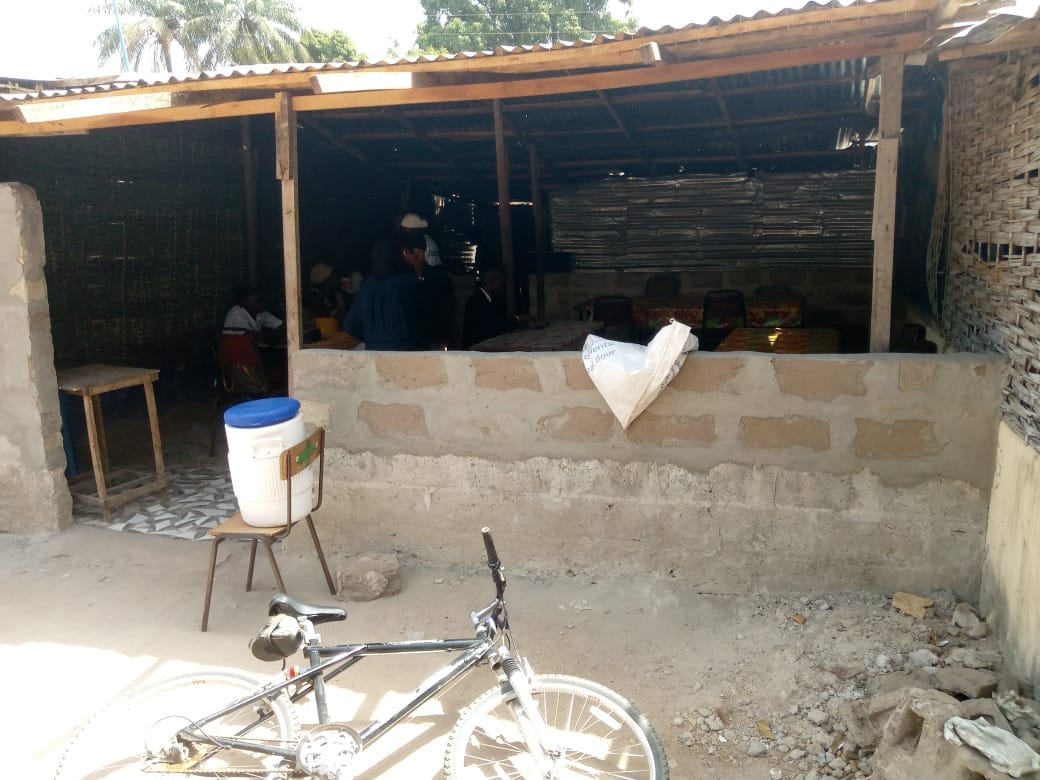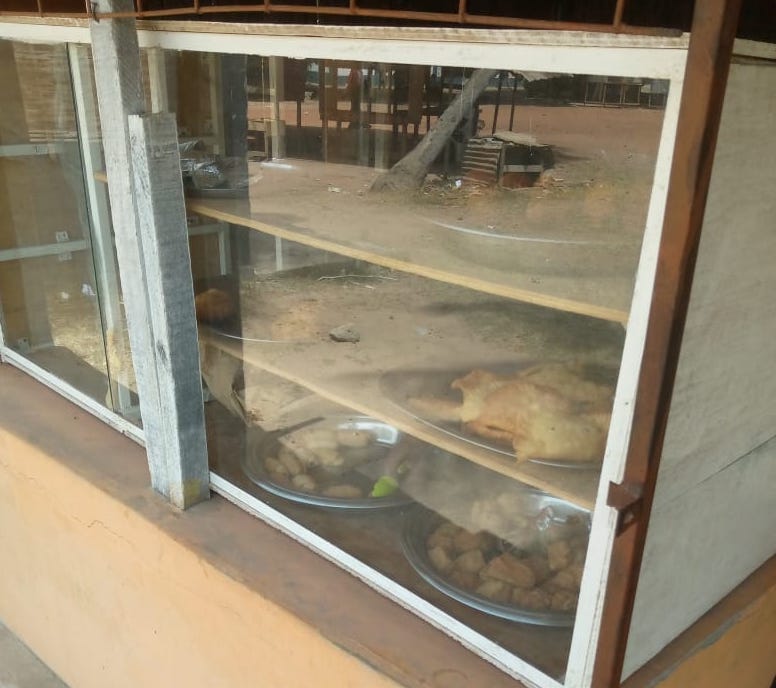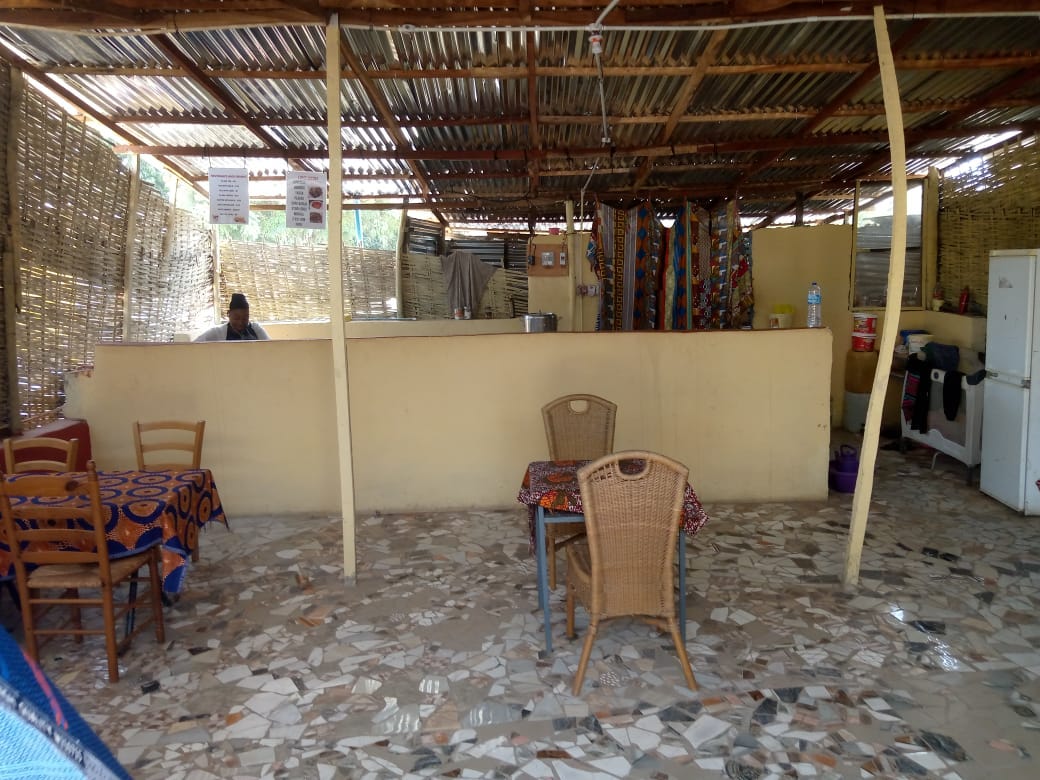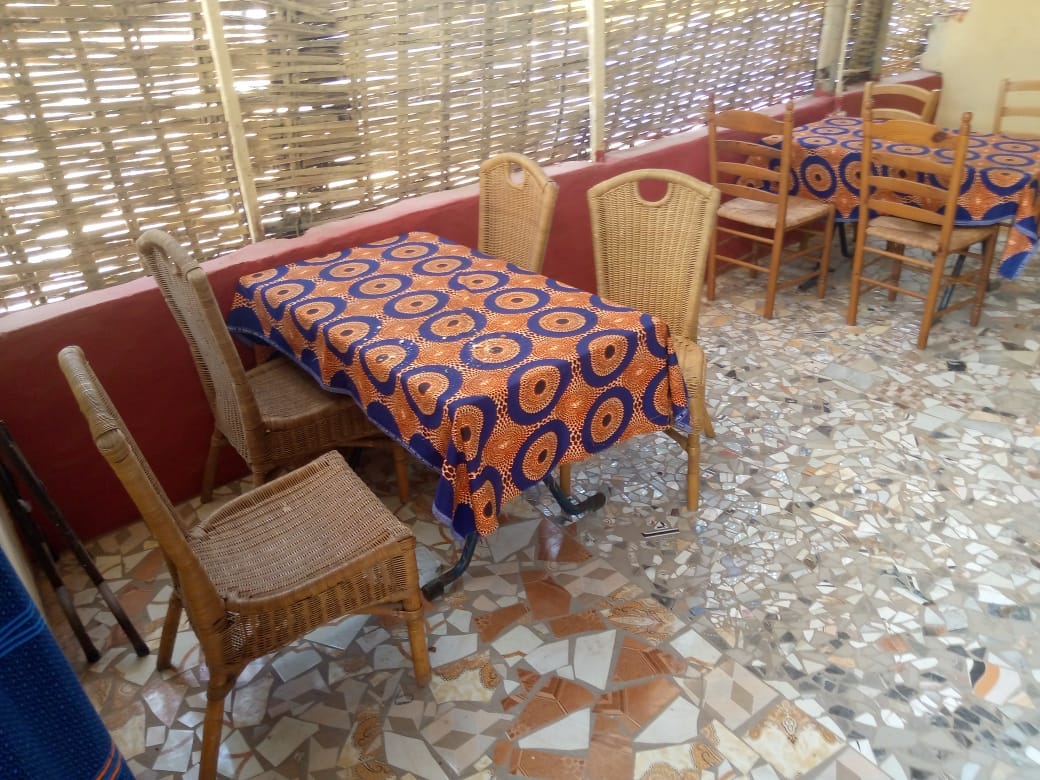Restaurants
It’s been a few weeks now since Patrick’s phone was damaged, and three weeks since I put his iPhone in the mail. The last word on that was that it had left John F. Kennedy Airport on August 29, presumably bound for somewhere overseas—Paris is my guess, as most flights bound for Banjul feature a stopover in the City of Light. It’s nerve-racking, frankly, the deafening silence from the U.S. Post Office regarding the phone’s current whereabouts. I’ve used them to ship things to Patrick before and I know that there comes a point where you start to think you could have gotten it there quicker by strapping it to a bird, but I’m confident that it will, some time before the heat death of the universe, arrive at the Banjul office of Gampost Shipping.
This is standard-issue Gambian nonsense. It’s a country of just over two million people but it barely registers in any meaningful way—it takes an eternity to send anything there, or it’s incredibly expensive, take your pick; the websites for various state institutions are as ill-maintained as any old MySpace site; Google Maps is filled with fictions and photos from Soviet-era satellites; aid groups devoted to Gambian relief are pits into which emails disappear without a trace. I can only assume that in-country things are worse. The nation has virtually no infrastructure at all other than a couple of bridges and a ferry across the river. The airport in Banjul sports a strikingly attractive terminal but only a single landing strip servicing a mere seventeen daily flights, half of which come from Dakar, some two hundred miles up the coast. The Banjul International Airport website prominently advertises JulBrew, Gambia’s only brewery.
Of course the farther you get from the capital the sketchier information becomes. The villages along the north bank of the Gambia River are among the most primitive places you’re likely to find in this world, and it’s easy to see how people can just disappear in such places. Thankfully Patrick hasn’t disappeared, but the wellspring of writing he was producing just a couple short months ago has reached its end. I’d hoped to run material he’d written about the various tribes of Gambia but the images I have of his drafts are almost unreadable.
In due time this will be remedied but for the time being I thought it might be interesting to dive into our past conversations and show off some of his fascinating pictures. While he was in school Patrick brought bread and butter1 with him each day for lunch, but he told me there were restaurants at the college, and I asked him to take some photos. My own experience with university dining consisted of a very institutional-style cafeteria specializing in gray burgers and goopy pizza, as well as “the grill,” which was a sort of restaurant serving various sorts of short order stuff—burgers, chicken sandwiches, grilled cheese, and of course french fries. I didn’t think much of it but it was worlds ahead of the offerings at Gambia College’s Brikama campus.
There’s not much about the Ida Louis Restaurant to indicate that it’s an active endeavor—Gambia is a sandy place to put it mildly, and everything has this look of being on the verge of being swallowed by the elements, but the sign leaning sidelong against the front of the place is rather a mark against it.
This establishment seems a little more active. I like the cooler outside. Drinks, I guess, are free, but they consist pretty much entirely of water or water.
A little hard to see what’s going on here but it’s basically a case full of some sort of pastries. I don’t know how Gambians get by without refrigeration, but they do. Patrick leans heavily on mayonnaise to give variety to his bread, but I have not yet figured out how he keeps it from spoiling in the relentless heat.
There are refrigerators though. I think this place would probably be my first choice, not only because of the colorful tablecloths but it’s clean and clearly has a kitchen presided over by someone who cares about presentation.
A closeup of the menu. I don’t know what most of this stuff is, but it’s a fair bet everything is a kind of stew.
For every dark and dusty room there’s another that’s bright and colorful. To me this is Gambia at its best. I’d totally eat here. Note the free water.
This is a bit of an odd note to end on perhaps but I really like the details in this view of the restaurant from a couple images back. The tablecloths are beautiful; the wicker chairs are nice; the floor is interesting (not just a concrete slab); the place is bright and welcoming.
These places are all a far cry from the grill at Middle Tennessee State University, but at least some are lively and they demonstrate what people can do with few resources other than their creativity and care. I wish there was more of this sort of thing in the Gambia, but the resources are so sorely lacking and to be quite honest I think a large portion of the population is quite careless—surrounded by so much poverty and suffering a good many of those in a position to improve the general welfare have simply checked out. They look after their own but rarely go further. Patrick hinted at as much when I asked him if he could reach out to a local Christian church in Brikama for assistance. “I think it would be worth discussing with the pastor there. It's his job to help,” I wrote.
He responded curtly, “You seem not to understand here from there in the USA.”
Anyway, ultimately this is one of the reasons I strive to support Patrick as much as I do. I know that, assuming he emerges from his own poverty and finds stable employment as a teacher, he won’t just pull the ladder up behind him. He’s shown me time and time again that he wants nothing more than to help those around him. He’ll have plenty of opportunities, that’s for sure.
He refers to bread without butter as “empty bread.”










